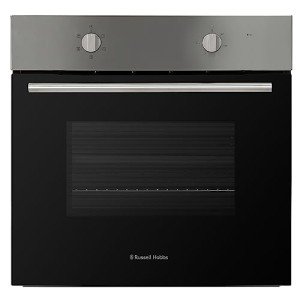How To Save Money On Builtin Oven
The Comprehensive Guide to Built-In Ovens: Features, Benefits, and FAQs
Built-in ovens are a popular choice for modern kitchens, using flexibility, performance, and a sleek style that integrates seamlessly into cabinetry. This post will delve into the different aspects of built-in ovens, including their features, advantages, installation choices, upkeep suggestions, and answers to frequently asked concerns.
What is a Built-In Oven?
A built-in oven is developed to be installed within kitchen cabinets and is available in numerous setups, such as single or double ovens. Unlike freestanding ovens, built-in models supply a structured appearance and offer more versatility in kitchen style. They come in electric, gas, and steam choices, catering to a variety of cooking choices.
Functions of Built-In Ovens
Built-in ovens are loaded with functions that enhance cooking experiences. Here are some of the most typical functions to think about:
Feature
Description
Self-Cleaning
Numerous designs include a self-cleaning function that burns residue at heats, simplifying upkeep.
Convection Cooking
This feature uses a fan to circulate hot air, cooking food more evenly and rapidly.
Smart Technology
Some ovens come geared up with Wi-Fi connectivity, enabling users to manage the oven from another location by means of smartphone.
Several Cooking Modes
Include options such as baking, broiling, roasting, and air frying, providing versatility for various dishes.
Temperature Probe
Monitors the internal temperature level of food, guaranteeing completely prepared meals whenever.
Smooth Design Options
Readily available in various surfaces (stainless steel, black, white) to match kitchen design.
Benefits of Built-In Ovens
The setup of a built-in oven brings many benefits to any kitchen:
- Space Efficiency: Built-in ovens optimize kitchen area, supplying a tidy and organized appearance without compromising performance.
- Improved Cooking Performance: With sophisticated features like convection cooking and precise temperature level controls, built-in ovens typically surpass conventional designs.
- Design Flexibility: These ovens can be set up at eye level, enabling simple gain access to without flexing down, which can be specifically advantageous for individuals with physical restrictions.
- Enhanced Resale Value: A properly designed kitchen with top quality built-in appliances may attract potential buyers, boosting total residential or commercial property worth.
- Personalization Options: Many brands use adjustable designs that fit the particular measurements and visual of specific cooking areas.
Installation Options
When picking a built-in oven, understanding the installation options is important. Here are the most typical configurations:
Single Built-In Oven: Ideal for smaller kitchen areas, these units provide sufficient space to cook a range of dishes concurrently, ideal for everyday cooking.
Double Built-In Oven: Best suited for passionate cooks and large families, double ovens allow for simultaneous cooking at two different temperatures, perfect for meals that require different cooking methods.
Mix Steam and Oven: A hybrid service that combines the benefits of traditional baking with steam cooking. This alternative is excellent for retaining moisture in foods, making it perfect for baking bread or roasting meats.
Upkeep Tips for Built-In Ovens
Maintaining a built-in oven is essential for its longevity and optimal efficiency. Here are some useful maintenance ideas:
Regular Cleaning: Use the self-cleaning function when necessary, and wipe down the outside and interior surface areas frequently to prevent grease buildup.
Check the Seals: Inspect the oven door seals for any wear or damage to guarantee correct insulation and cooking effectiveness.
Temperature level Calibration: Occasionally evaluate the temperature level accuracy using an oven thermometer, specifically if cooking times appear longer than typical.
Ventilation: Ensure sufficient ventilation around the oven to avoid overheating, particularly for built-in designs that might be surrounded by cabinets.
FAQs About Built-In Ovens
1. Are built-in ovens more pricey than freestanding designs?Yes, built-in ovens tend to be more expensive due to their style, installation requirements, and extra functions. Nevertheless, their advantages can justify the cost in the long run.
2. Can you set up a built-in oven yourself?While some handy people might try to set up a built-in oven, it is suggested to hire an expert to ensure appropriate installation, ventilation, and safety requirements.
3. What is the typical lifespan of a built-in oven?The normal life-span of a built-in oven is around 10 to 15 years, depending upon usage and maintenance. Regular care can assist extend its durability.
4. Are built-in ovens energy efficient?Lots of contemporary built-in ovens are created with energy performance in mind, integrating features like insulation and accurate temperature controls that might minimize energy consumption compared to older models.
5. Can a built-in oven be repaired if it breaks?Yes, built-in ovens can typically be repaired. It is recommended to get in touch with a certified service technician for diagnoses and repair work to ensure safety and compliance with guarantee arrangements.
Built-in ovens are an excellent addition to any modern-day kitchen, providing a mix of style, performance, and advanced cooking functions. With visit the next web page about their functions, benefits, and upkeep, property owners can make informed choices to improve their cooking experiences. As kitchen style patterns continue to develop, the built-in oven stays a staple for those wanting to blend aesthetics with efficiency in their cooking areas.
